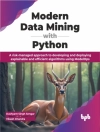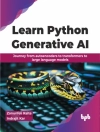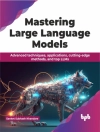This book provides the state-of-the-art development on security and privacy for fog/edge computing, together with their system architectural support and applications. This book is organized into five parts with a total of 15 chapters. Each area corresponds to an important snapshot. The first part of this book presents an overview of fog/edge computing, focusing on its relationship with cloud technology and the future with the use of 5G communication. Several applications of edge computing are discussed. The second part of this book considers several security issues in fog/edge computing, including the secure storage and search services, collaborative intrusion detection method on Io T-fog computing, and the feasibility of deploying Byzantine agreement protocols in untrusted environments. The third part of this book studies the privacy issues in fog/edge computing. It first investigates the unique privacy challenges in fog/edge computing, and then discusses a privacy-preservingframework for the edge-based video analysis, a popular machine learning application on fog/edge.
This book also covers the security architectural design of fog/edge computing, including a comprehensive overview of vulnerabilities in fog/edge computing within multiple architectural levels, the security and intelligent management, the implementation of network-function-virtualization-enabled multicasting in part four. It explains how to use the blockchain to realize security services. The last part of this book surveys applications of fog/edge computing, including the fog/edge computing in Industrial Io T, edge-based augmented reality, data streaming in fog/edge computing, and the blockchain-based application for edge-Io T.
This book is designed for academics, researchers and government officials, working in the field of fog/edge computing and cloud computing. Practitioners, and business organizations (e.g., executives, system designers, and marketing professionals), who conduct teaching, research, decision making, and designing fog/edge technology will also benefit from this book The content of this book will be particularly useful for advanced-level students studying computer science, computer technology, and information systems, but also applies to students in business, education, and economics, who would benefit from the information, models, and case studies therein.
Cuprins
Part I: Overview of Fog/Edge Computing.- 1. ‘Confluence of 4G LTE, 5G, fog, and cloud computing and understanding security issues’.- 2. “An overview of the Edge Computing in Modern Digital Age”.- Part II: Security in Fog/Edge Computing.- 3. ‘Secure Search and Storage Services in Fog/Edge Computing’.- 4. “Collaborative Intrusion Detection Schemes in Fog-to-Things Computing”.- 5. “On the Feasibility of Byzantine Agreement to Secure Fog/Edge Data Management” .- Part III: Privacy in Fog/Edge Computing.-6. “Privacy Issues in Edge Computing”.- 7. ‘Privacy-preserving Edge Video Analytics’.- Part IV: Architectural Design in Fog/Edge Computing.- 8. “Vulnerabilities in Fog/Edge Computing from Architectural Perspectives”.- 9. ‘Security and Intelligent Management for Fog/Edge Computing Resources’.- 10. “Algorithms for NFV-Enabled Multicasting in Mobile Edge Computing”.- 11. “Blockchain-based Security Servicesfor Fog Computing”. Part V: Applications of Fog/Edge Computing.- 12. “Industrial Internet of Things (IIo T) Applications of Edge and Fog Computing: A Review and Future Directions”.- 13. “Security Problems in Edge Computing and Augmented Reality”.- 14. “Towards a Security-aware Deployment of Data Streaming Applications in Fog Computing”.- 15. “Blockchain of Finite-Lifetime Blocks for Edge-Io T Applications”.
Despre autor
Jie Wu is the Director of the Center for Networked Computing and Laura H. Carnell professor at Temple University. He also serves as the Director of International Affairs at College of Science and Technology. He served as Chair of Department of Computer and Information Sciences from the summer of 2009 to the summer of 2016 and Associate Vice Provost for International Affairs from the fall of 2015 to the summer of 2017. Prior to joining Temple University, he was a program director at the National Science Foundation and was a distinguished professor at Florida Atlantic University. His current research interests include mobile computing and wireless networks, routing protocols, cloud and green computing, network trust and security, and social network applications. Dr. Wu regularly publishes in scholarly journals, conference proceedings, and books. He serves on several editorial boards, including IEEE Transactions on Mobile Computing, IEEE Transactions on Service Computing, Journal of Parallel and Distributed Computing, and Journal of Computer Science and Technology. Dr. Wu was general co-chair for IEEE MASS 2006, IEEE IPDPS 2008, IEEE ICDCS 2013, ACM Mobi Hoc 2014, ICPP 2016, and IEEE CNS 2016, as well as program cochair for IEEE INFOCOM 2011 and CCF CNCC 2013. He was an IEEE Computer Society Distinguished Visitor, ACM Distinguished Speaker, and chair for the IEEE Technical Committee on Distributed Processing (TCDP). Dr. Wu is a Fellow of the AAAS and a Fellow of the IEEE. He is the recipient of the 2011 China Computer Federation (CCF) Overseas Outstanding Achievement Award.
Wei Chang is Assistant Professor at the Computer Science Department, Saint Joseph’s University, Pennsylvania, USA. He received a Ph.D. in Computer Science from Temple University in 2016, and B.S. from Beijing University of Posts and Telecommunications in 2009. His research interests include social information-assisted system design, and its related security and privacy issues. Dr. Chang was General Chairs of IWMSN 2020, AFEC 2020, IWMSN 2019, Trust Data 2019, and Trust Data 2018, and Program Committee members for IEEE ICCCN 2020, ICDCS 2019, Smart World 2019, i SCI 2019, Smart World 2018, Big Trust 2018, Trust Data 2017, ICCCN 2017 and ICA3PP 2017. Dr. Chang also serves as the coordinator of the Cybersecurity (CSEC) Program at the Department of Computer Science, Saint Joseph’s University.












